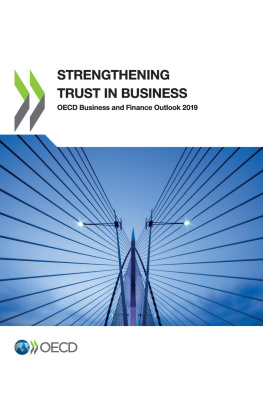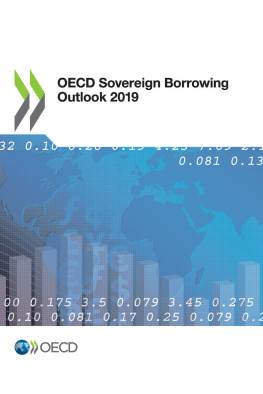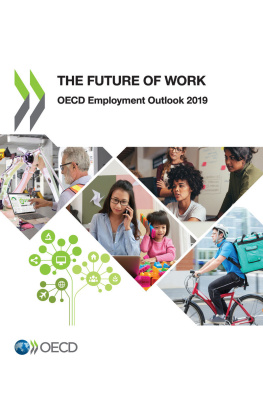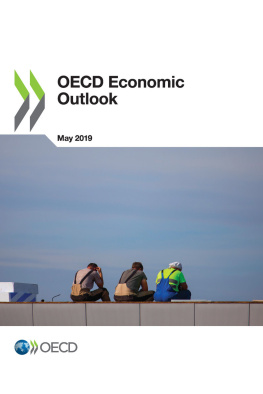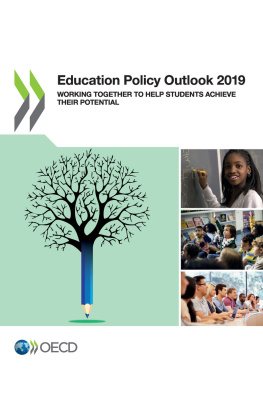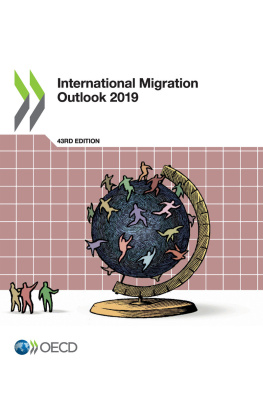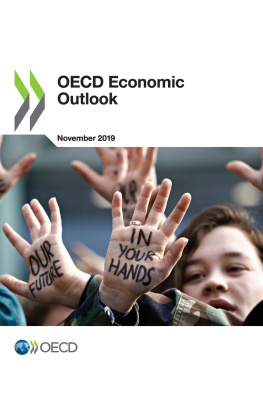OECD - OECD Regional Outlook 2019
Here you can read online OECD - OECD Regional Outlook 2019 full text of the book (entire story) in english for free. Download pdf and epub, get meaning, cover and reviews about this ebook. year: 2019, publisher: OECD Publishing, genre: Politics. Description of the work, (preface) as well as reviews are available. Best literature library LitArk.com created for fans of good reading and offers a wide selection of genres:
Romance novel
Science fiction
Adventure
Detective
Science
History
Home and family
Prose
Art
Politics
Computer
Non-fiction
Religion
Business
Children
Humor
Choose a favorite category and find really read worthwhile books. Enjoy immersion in the world of imagination, feel the emotions of the characters or learn something new for yourself, make an fascinating discovery.
OECD Regional Outlook 2019: summary, description and annotation
We offer to read an annotation, description, summary or preface (depends on what the author of the book "OECD Regional Outlook 2019" wrote himself). If you haven't found the necessary information about the book — write in the comments, we will try to find it.
OECD: author's other books
Who wrote OECD Regional Outlook 2019? Find out the surname, the name of the author of the book and a list of all author's works by series.
OECD Regional Outlook 2019 — read online for free the complete book (whole text) full work
Below is the text of the book, divided by pages. System saving the place of the last page read, allows you to conveniently read the book "OECD Regional Outlook 2019" online for free, without having to search again every time where you left off. Put a bookmark, and you can go to the page where you finished reading at any time.
Font size:
Interval:
Bookmark:
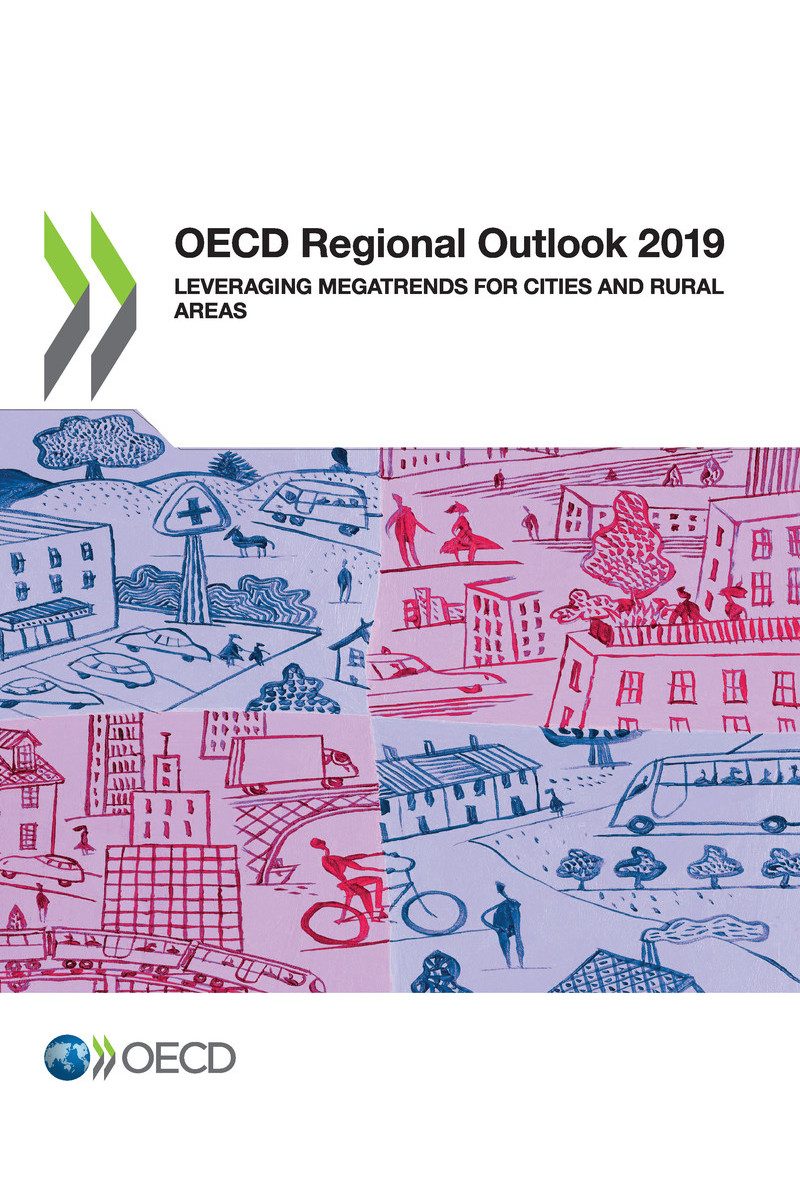
OECD (2019), OECD Regional Outlook 2019: Leveraging Megatrends for Cities and Rural Areas , OECD Publishing, Paris.
https://doi.org/10.1787/9789264312838-en
The fourth edition of the OECD Regional Outlook: Leveraging Megatrends for Cities and Rural Areas , comes at a timely moment when regional disparities have become the focus of significant public attention. In underperforming regions, persistent gaps in socio-economic outcomes have led to growing discontent with the political and economic status quo. The distinct geography of discontent that has emerged has provided a powerful reminder of the urgency to address regional inequalities.
The publication of this edition of the Regional Outlook also coincides with the 20th anniversary of the OECD Regional Development Policy Committee. Since its creation in 1999, the committee has consistently argued for place-based policies to ensure that all regions use their full economic potential and reduce regional inequalities. Today, this recommendation has become an integral part of the OECD policy package and is more important than ever.
Place-based policies can effectively address the diversity of economic, social, demographic, institutional and geographic conditions across regions. They target specific territories and provide the tools that traditional structural policies often lack in order to address the region-specific factors that cause economic and social stagnation. They also ensure that a wide range of sectoral policies, from transport and education to innovation and health, are co-ordinated with each other and meet the specific needs of different regions across a country from remote rural areas to the largest cities.
Global megatrends related to technological, demographic and environmental changes will increase the importance of place-based policies in the future. These trends are affecting all OECD regions today and their effects will only grow stronger. While these megatrends are well-known, their regional dimension is rarely discussed. Yet, as this report points out, their effects are far from uniform within countries. By discussing how regional policy can respond to these asymmetric impacts, this report fills a critical gap.
With the right policies, global megatrends will offer tremendous opportunities to revive productivity growth, reduce inequalities, improve quality of life and increase sustainability. For example, new technologies will increase the importance of knowledge-based services that are predominantly located in cities. Yet, rural areas can benefit from the distance-mitigating effects that autonomous vehicles, drone deliveries, 3D printing and better communication technologies will offer. However, if policy makers do not take appropriate action today, global megatrends can contribute to an increase of regional inequalities and will divide countries further into thriving regions and those that are left behind.
This Regional Outlook aims to serve as a guide to help policy makers at all levels of government to leverage global megatrends. It analyses the likely range of scenarios that will be confronted in the future by different regions and, insofar as possible, presents steps that policy makers can already take today to shape the next generation of regional policies.
The Regional Outlook s Policy Forum section (Part II) allows senior decision makers and distinguished scholars to present first-hand perspectives on regional responses to global megatrends. It provides a unique perspective on what needs to be done to future-proof regional policy, in order to deliver better lives for our populations.

Angel Gurra
OECD Secretary-General
This publication was produced in the OECD Centre for Entrepreneurship, SMEs, Regions and Cities (CFE), led by Lamia Kamal-Chaoui, Director, as part of the programme of work of the Regional Development Policy Committee (RDPC).
The report was co-ordinated and edited by Abel Schumann under the supervision of Joaquim Oliveira Martins, Deputy Director of CFE, and Rdiger Ahrend, Head of the Economic Analysis, Statistics and Multi-level Governance Section of CFE. Abel Schumann drafted Chapters 1-3 with contributions from Claire Charbit, Alexander C. Lembcke and Anna Rubin (Chapter 1); Marco Bianchini, Matteo J. Schleicher and Yingyin Wu (Chapter 2); and Marissa Plouin and Andres Sanabria (Chapter 3). Chapter 4 combines contributions from Anna Bolengo, Claire Charbit, Jonathan Crook, Federica Daniele, Jared Gars, Peter Haxton, Taekyeong Jung, Lukas Kleine-Rueschkamp, Alexander C. Lembcke, Tadashi Matsumoto, Chris McDonald, Anna Piccinni, Oriana Romano, Andres Sanabria, Hkan Tropp and Paolo Veneri. Chapter 5 was drafted by Dorothe Allain-Dupr, Isabelle Chatry, Yingyin Wu and Isidora Zapata. It includes contributions from Jonathan Crook, Enrique Garcilazo, Tamara Krawchenko, Tadashi Matsumoto, Varinia Michalun and Antti Moisio. Eric Gonnard provided statistical inputs for the report. Rdiger Ahrend, Aziza Akhmouch, Lucia Cusmano, Alain Dupeyras, Sylvain Giguere, Taku Honiden and Karen Maguire supervised contributing staff. The report was copy-edited by Jennifer Allain and prepared for publication by Pilar Philip.
The country profiles that are published as an online appendix to this report were drafted by Spencer McMurray and Matteo J. Schleicher under the supervision of Abel Schumann, based on inputs provided by the delegates of the OECD Regional Development Policy Committee.
The OECD is especially grateful for contributions from senior policy makers and distinguished scholars to the Policy Forum of this Regional Outlook . The essays published in the Policy Forum were provided by Corina Creu, European Commissioner for Regional Policy; Anne Hidalgo, Mayor of Paris and Chair of the OECD Champion Mayors for Inclusive Growth; Richard Florida, University Professor, University of Toronto; and Jacques Lvy, Professor of Geography and Urbanism, cole Polytechnique Fdrale de Lausanne.
Font size:
Interval:
Bookmark:
Similar books «OECD Regional Outlook 2019»
Look at similar books to OECD Regional Outlook 2019. We have selected literature similar in name and meaning in the hope of providing readers with more options to find new, interesting, not yet read works.
Discussion, reviews of the book OECD Regional Outlook 2019 and just readers' own opinions. Leave your comments, write what you think about the work, its meaning or the main characters. Specify what exactly you liked and what you didn't like, and why you think so.










